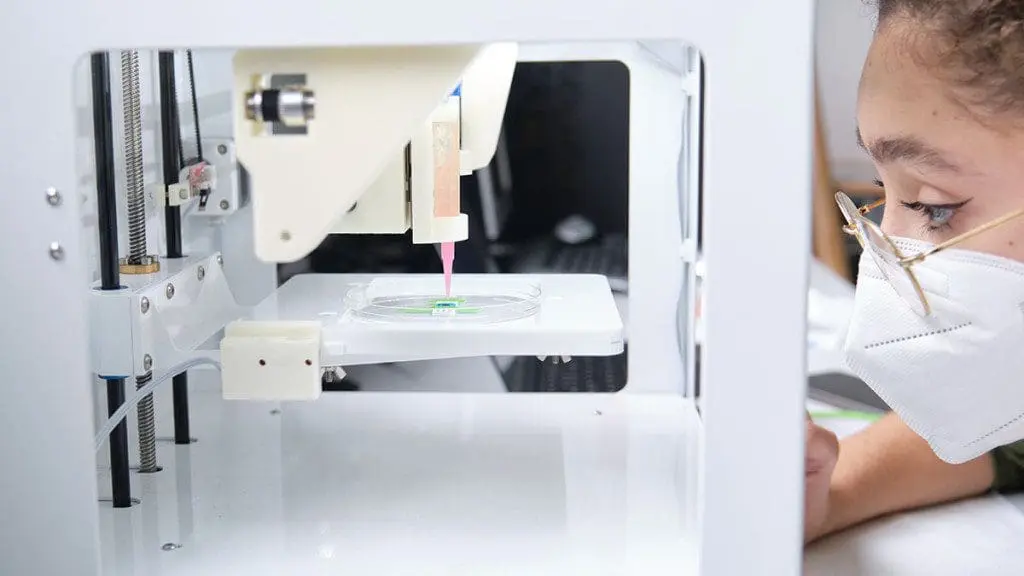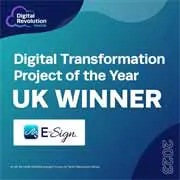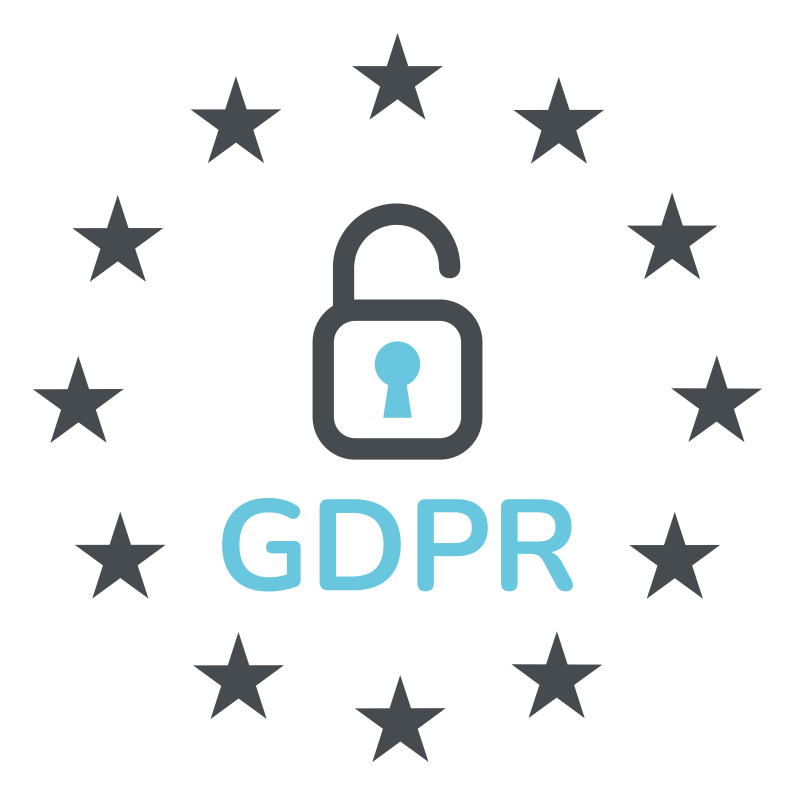Top 7 Healthcare Tech Trends to Watch in 2025
Desislava Topuleva
Customer Success Manager
PUBLISHED
30th April, 2025
Digital transformation continues to redefine industries globally—and healthcare is at the forefront of this revolution. At E-Sign, we’ve previously highlighted how digital transformation has benefited the NHS, particularly through our healthcare electronic signature and e-consent solutions. These technologies have proven to be game-changers by improving efficiency, cutting costs, and enhancing patient care.
Beyond digital tools, new healthcare technologies are reshaping how we diagnose, treat, and engage with patients. From the creation of the smallpox vaccine to today’s AI-assisted diagnostics, innovations are enabling people to live longer, healthier lives.
As we head deeper into 2025, the healthcare industry is entering unprecedented territory. Technologies like AI, virtual care, genomics, and blockchain are transforming medicine, administration, and commercial operations.
Here are seven key healthcare technology trends to watch in 2025:
- Artificial Intelligence
AI continues to redefine how healthcare is delivered. In 2025, the global artificial intelligence in healthcare market size is estimated to hit approximately USD 613.81 billion by 2034, up from USD 36.96 billion in 2025.
AI is already transforming care by automating administrative tasks, summarising clinical notes, and improving disease diagnosis—particularly in radiology and pathology. In 2025, generative AI tools are expected to become even more embedded in daily clinical workflows, addressing staffing shortages and reducing burnout by streamlining time-consuming work.

- Virtual and Augmented Reality
Although AI has dominated attention, VR and AR are making quiet but powerful strides in healthcare. With Apple’s Vision Pro and Meta’s Quest 3 now widely used in clinical settings, AR/VR is enhancing surgical precision, medical education, and patient rehabilitation.
Surgeons now use augmented overlays in operating theatres, while VR is helping patients manage pain, anxiety, and cognitive conditions. These technologies are moving from experimental to essential in 2025.
- Personalised Medicine
Personalised medicine, driven by genomics and AI, is gaining momentum. By analysing DNA, clinicians can now tailor treatments to individual patients at the molecular level.
In 2025, projects like Genomics England are expanding, offering newborn genome sequencing to screen for over 200 rare conditions. This proactive approach improves early detection, helps avoid trial-and-error treatments, and ensures better use of NHS resources.

- Remote Patients Monitoring and Communication
Remote Patient Monitoring (RPM) is now a standard component of chronic disease care. Thanks to the Internet of Medical Things (IoMT), devices such as blood pressure monitors, glucose meters, and wearables continuously stream health data to clinicians.
Since COVID-19, RPM has grown rapidly. In the UK, E-Sign partnered with the National Clinical Homecare Association (NCHA) to digitise prescriptions, achieving:
- 80% reduction in processing time
- Over 9,000kg CO₂ equivalent saved annually
- £93,000+ saved through reduced mailing and energy costs
- Improved staff productivity and reduced prescription delays
In 2025, RPM is critical to reducing hospital readmissions and managing aging populations.
- IoT-Powered Virtual Hospitals
Virtual hospitals—powered by IoT and remote connectivity—are no longer futuristic concepts. In 2023, Saudi Arabia launched the world’s first virtual hospital, and now this model is expanding globally.
These systems use wearables, video calls, and real-time data analytics to provide hospital-level care from home. In 2025, we’re seeing “hospital-at-home” programs scaling across Europe, helping to manage patient loads while delivering cost-effective, personalised care.
- 3D Bioprinting
3D bioprinting continues to revolutionise prosthetics, implants, and even tissue engineering. This technology allows for the creation of custom, biocompatible components—especially valuable for joint replacements and neurological implants.
In 2025, bioprinting is also being explored for organ scaffolds, bone grafts, and vascular structures. Coupled with AI, this tech could soon make tailored, affordable implants the standard in elective and emergency care.

- Data Explosion and Blockchain
Healthcare data now grows faster than in any other industry. In 2025, the global healthcare data storage market is estimated to reach $32 billion, and it’s forecasted to hit $69 billion by 2032.
With more data comes more risk. Cyberattacks, ransomware, and breaches are on the rise—making blockchain a crucial tool. Blockchain offers tamper-proof, decentralised data storage—ideal for securing patient records, consent logs, and supply chain details. In 2025, hospitals are adopting it not just for security, but also for compliance and traceability.
How E-Sign Is Driving Healthcare Digitalisation in 2025
E-Sign provides trusted, compliant eSignature and digital document solutions to healthcare organisations. Our platform helps eliminate outdated, paper-based processes and streamline operations across:
- Patient records
- eConsent forms
- Clinical audit and compliance
- Medical onboarding and forms
- Digital prescriptions
By using E-Sign’s platform, healthcare teams can significantly reduce admin time, accelerate patient interactions, and increase transparency across departments. Our tools enhance patient experience while offering measurable cost savings and sustainability benefits.
Take the Next Step Toward Smarter Healthcare
Digital transformation in healthcare isn’t just a trend—it’s a necessity. Whether you’re looking to streamline patient consent, digitise prescriptions, or modernise how your organisation handles documentation, E-Sign provides the secure, compliant, and efficient solution you need.
Join the growing number of healthcare organisations already reaping the benefits of going paperless.
Start your free trial today or contact E-Sign to discover how our digital tools can transform your workflows, reduce costs, and enhance the patient experience.
 Facebook
Facebook
 X (Twitter)
X (Twitter)
 LinkedIn
LinkedIn











